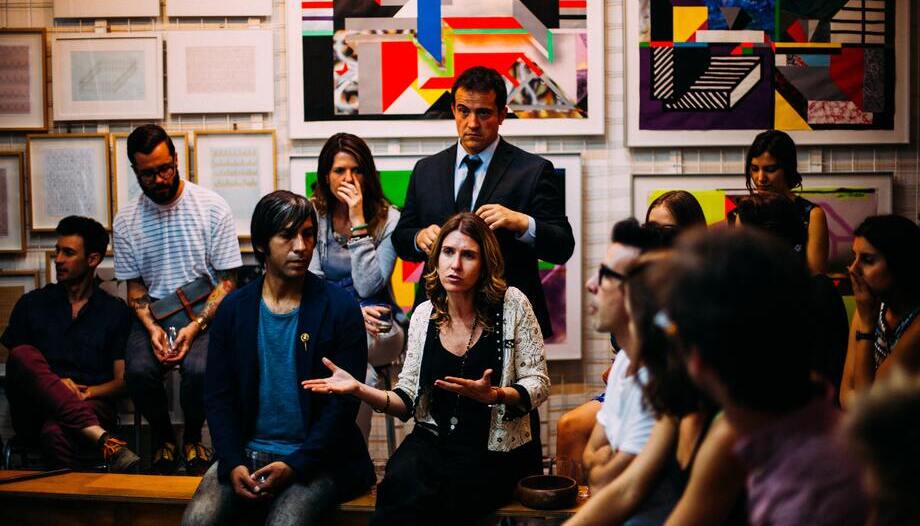On Friday, June 24, the Supreme Court annulled the sentence of Roe vs. Wadewhich had protected the "right" to abortion in the United States since 1973. Once the decision was known, thousands of people took to the streets to celebrate, while many others took to the streets in protest.
Abortion is possibly the most controversial moral issue in the West for more than fifty years.
The demands of pro-lifers seem reasonable, insofar as they believe that human lives are at stake. However, those in favor of abortion are equally convinced that it is a human right of women, since they believe that embryos or fetuses are not persons with rights.
I am personally against abortion but, in these lines, I do not want to go into the arguments of the two sides. I want to underline the fact that we clearly disagree. If we all recognize this, the next thing we can ask ourselves is how to move forward together in clarifying this issue.
It is true that one may think that it is impossible to reach an agreement on the matter. There are good reasons for this: The positions of both sides are very firm. We hardly listen to each other's reasons, there are many conflicting economic interests, it is an issue that involves us emotionally, and so on.
Now, after so many centuries of history, I wonder if it might not be possible to resolve our differences in a more rational and peaceful way. Throughout history, human beings have solved our disagreements by resorting to war, personal disqualifications and, lately, to cancellation or social condemnation. And the truth is that it makes sense to do so, because many times the forced imposition of the ideas of some over others has been effective. It has worked on many occasions, implanting a certain vision of the world.
I believe that this is the reason why we can all be tempted to impose by majorities the laws we consider just. And since violence is no longer socially acceptable, we prefer not to resort to it unless we have no other choice.
I am probably a bit naïve, but I wonder if we might not be able to have a calm dialogue on a controversial moral issue. It is obviously not easy, but if we don't try, we risk further deepening the polarization that increasingly divides our societies.
With the decision of the American court, the pro-lifers have won a great victory, overturning a sentence that seemed immovable. Tomorrow, however, it will be the pro-abortionists who will win the next battle. Now, what I think we can all agree on is that imposing laws by narrow majorities is not solving social discrepancies. On the contrary, it seems to be widening them.
So we should all accept that we have to face a complex and uncomfortable moral debate. Michael Sandel, the famous Harvard professor and Princess of Asturias Award winner, has devoted much of his work to explaining why most social debates on controversial moral issues have not actually taken place. His research shows that it makes no difference whether the issue is abortion, euthanasia, gay marriage or surrogacy: In none of these cases has there been any real dialogue. Nor is there any difference between how the decision-making processes have been managed in one country and another. In all of them we find the legislative imposition of some majorities over others.
Therefore, if we are all to respect each other and move forward as a society, both sides must seek the truth on every issue if we are to truly resolve it. And how will it be possible to overcome disagreements? Personally, I am convinced that on any of the issues on which we disagree, there are many aspects of the same issue on which we do agree. Only by starting from what we all accept, can we clarify exactly where we disagree. And, at that point, we will have to ask ourselves how we can live together.
Let's take the recently overturned abortion ruling as an example. The positions of President Joe Biden and the U.S. bishops are diametrically opposed when it comes to judging the Supreme Court's decision. However, both have stressed the importance of there not being an outbreak of violence. The fact that some states now prohibit abortion and others make it even easier does not solve the underlying problem. We are far from being able to live together peacefully and to create the conditions for a climate in which the truth about the origin of life can be clarified.
In this sense, pro-life triumphalism cannot be revanchist: It is not enough to ban abortion in some states if it does not really help all mothers who have difficulties in raising their children. And rubbing the victory in the face of pro-abortion supporters won't add up to much either (and this regardless of whether they do the same when they take the cake).
I understand the reasons of the pro-life protesters who have taken to the streets to celebrate. It is certainly a great step forward for their cause. However, the U.S. Supreme Court has been far from saying that abortion is ending a person's life. It has simply stated that it is up to the individual American states to decide whether or not to legalize it. In doing so, it is implicitly acknowledging that abortion is not killing an innocent person, for if it really thought that, American law would prohibit it nationwide.
Where am I going with all this? Well, regardless of whether abortion is legal or not in a given state (and we could say the same about any country), the real problem is how we are going to reach an agreement between the two sides. Laws are important and certainly shape culture, but what I have tried to point out in these lines is that on certain issues the establishment of a law does not end the controversy. So how can we move forward?
The road to solving these issues is not an easy one, so many think that the only thing left is the cultural battle. If we understand this concept as showing one's face in public debate in order to rationally justify one's convictions, then I agree that it is very necessary. However, if showing one's cultural battle means accepting that in society there are two sides to every controversial issue and only one of the two can remain standing, so I am not so enthusiastic about the idea. I don't want to do away with those who think differently and I don't want to impose my convictions on them either. I want a society where both sides have the opportunity to try to convince the other of their position without being cancelled for trying to do so.
Therefore, although I am pleased with the cancellation of the Roe vs WadeI do not have a triumphalist tone towards the supporters of abortion. In fact, they are now feeling attacked and more afraid, so they a priori it is not so easy for them to listen to the reasons of the opposing position. I, on the other hand, want to dialogue with them, to try to convince them, not to defeat them in a vote that today I have won and tomorrow I may lose. And of course, I am also willing to listen to their arguments without making personal disqualifications and respecting people who do not think like me. Perhaps in this way we will make real progress in the debate.
Editor of Omnes. Previously, he has been a contributor to various media and a high school philosophy teacher for 18 years.








